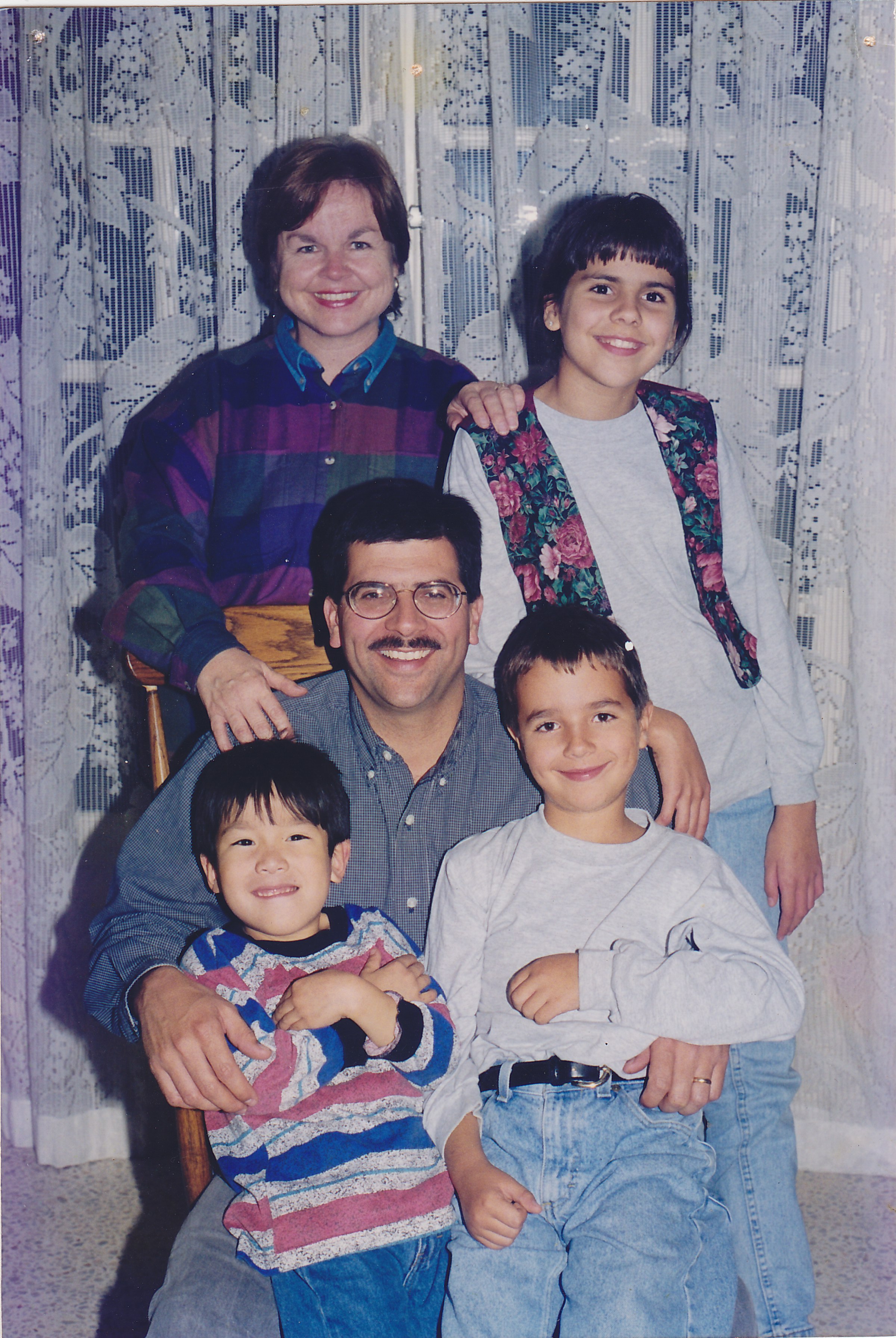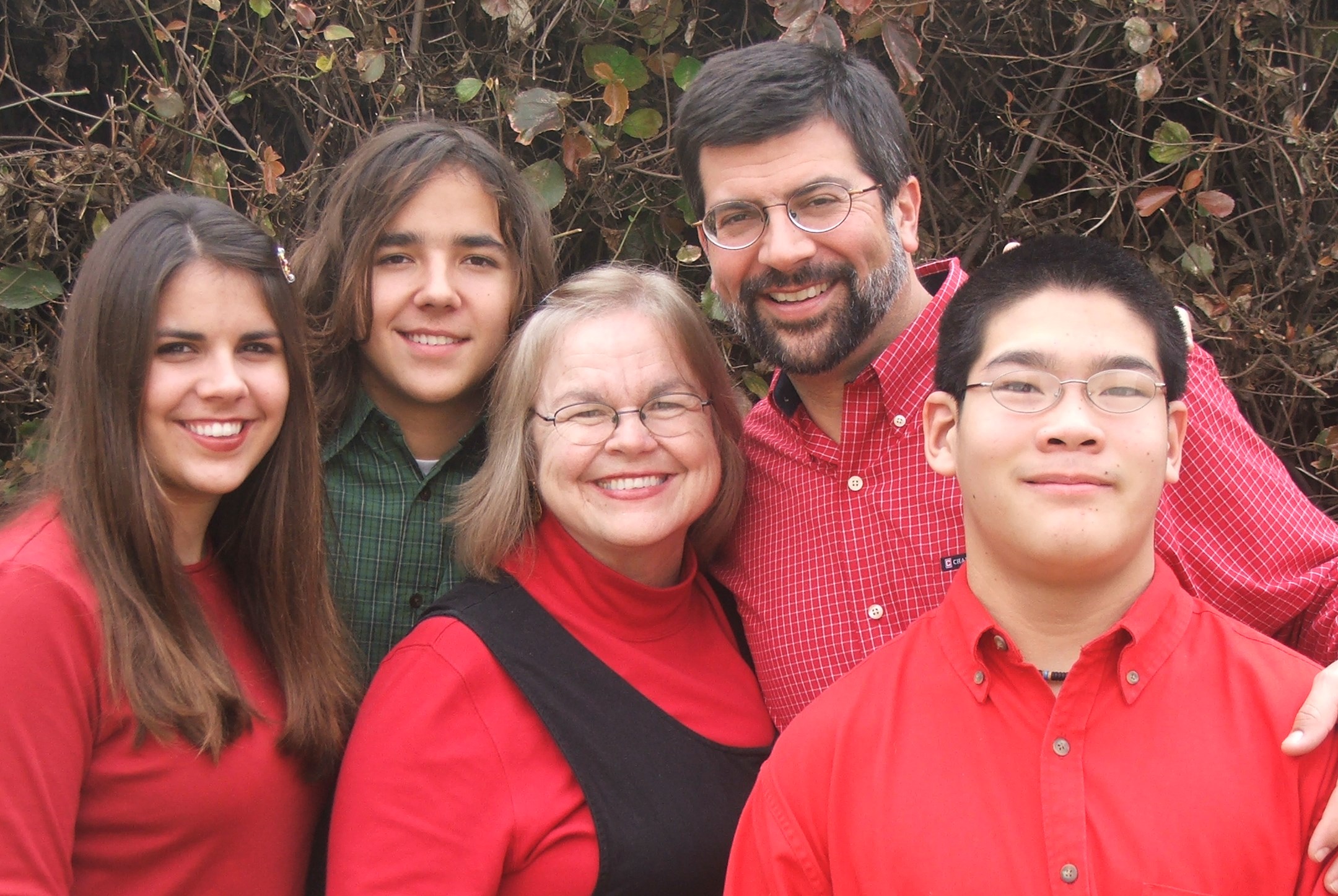
[Dave’s Mom, Our Adult Kids, Dave & Me – Not all the grands are on social media – but they begin the next generation of our family.]
I want to write about family…well, this family right here. In fact, I want to write a letter to them. Feel free to read along.
Dear Family,
Yesterday was a sweet time celebrating our September birthday guys – Dave & Nathan. Father & First Son. You both are so dear to all of us.

To you siblings and siblings-in-law, I love you so much. In the early years, I had this wild idea about how, while we live in the same city, we would get together weekly – like for Sunday dinner – like in the TV show Blue Bloods.

[Blue Bloods – read the short piece on how their weekly family gatherings shaped the show and character relationships.]
We don’t get together weekly, and that’s ok. When we do get together, it can be loud and opinionated, just like that TV family. However, it’s always rich – food for thought as well as body. Hope you leave each time, not just with a full tummy but, with the refreshed understanding of how much you are loved. Not just by Dad and me but by your siblings.

[I’m a faithful documenter of people and special events. Always working on their patience. It means a lot when everyone cues up and smiles, but occasionally someone doesn’t feel like it…and that’s ok.]
To our youngest: I know being the baby of the family can get old, especially when you find yourself in your mid-30s. Hopefully you know that your opinions matter to your family. We want to know what you think… always. It made me sad that you were suffering from a headache through most of the meal yesterday. Please take heart that although we all don’t always agree on everything, we are grounded in love for each other. That’s priority and it will never change. Ever. I want to thank you for loving your family, too. You don’t have to show up and yet you do. There is a measure of hard in your life, different from ours, which would be easy for you to stay focused on. It gives us immeasurable joy when you are able to shake off the hard and laugh about “the old days”, tease your siblings and absorb their ribbing, and love on your nieces and nephews. It’s also no small thing how you serve us (me) – baking and straightening.

[Lots of Sibling Love Right Here]
To the married siblings and their spouses: You have incredibly busy lives, and yet for those hours when we are together for the odd special occasion, time slows. You are present. You are engaged. You are yourselves. The flow of conversation is easy and animated. You roll with the skirmishes between little cousins and you parent them all so well. I hope you know how much you are loved. As your Dad (Dad-in-law) and I get older, we are so grateful for how you hang in there with us and each other. Family estrangement is so prevalent in our world today, but so far, we have weathered the storms. Your commitment to our family is something we do NOT take for granted.

[The Guys]

[The Big Sister & the Little Brother]
To any who are reading: all families are different. Within each family, there are tremendous differences in temperaments, preferences, and even worldview. Ruptures can happen and repair is hard to come by. Our Sunday birthday dinner reminded me of things learned over the last few years:
- We can make a place of safety and security for those we live.
- When we are only around people who agree with us, we experience an echo chamber of affirmation. When we experience dissonant voices from those who love us, we learn how to better love those different from us.
- In a rowdy family discussion, we still probably agree more than we disagree. Take an inventory on that from time to time. How do we affirm each other even when we don’t agree?
- Lead with curiosity and empathy. If contempt is stirred up, recognize it for the destroyer of relationships it is, and take steps against it (see here).
- Remember life is messy. Family is messy. We may prefer our lives (and families) to “look” a certain way, but it’s healthier for us to be real and honest with each other. “The human mind doesn’t have the capacity to live a life so curated” (convo with friend/counselor Taryn Blocker).
- Flexibility is a character quality we all need to navigate relationships when people are crossing our boundaries. Flexibility, humility, and forgiveness. It’s going to happen, especially in family. Respecting boundaries goes both ways and takes both self-care and other-care. Or relationships break down.
- What else? What would you add to those list? Please share in comments.

[The original three & me]
I am very thankful for this family. With all our warts. Not unlike any other family out there. So thankful for the relationships these siblings have with each other, and for the littles with their sibling and cousin relationships. Check out these beautiful reels from Instagram on the topic.
Instagram – Siblings Are One of the Most Important Relationships You Will Ever Have
Instagram – “Who do we call when you’re not around?”…”Each other.”
Finally, I’d like to just mention psychiatrist Dr. Gabor Maté‘s opinion on how all children grow up in different families with different parents. He justifies that thinking about how we, as parents, change and evolve in our thinking on parenting, with each child, and our children are all different from each other. We may even use the same practices but our children react differently to them. The old adage” of “caught or taught” would bring meaning to this as well.
“Siblings may grow up in the same house, but that doesn’t mean their childhoods were the same. Not even close.
Same parents? Nope.
Same family? Nope.
Same childhood? Absolutely not.
Parents show up differently for each child depending on the season of their life, their relationship, and even their financial situation.
It’s not about who is loved more.
It’s about how that love is expressed — and how each child experiences it.
If you’ve ever wondered why you and your siblings remember childhood so differently — this is why. – Clip from The Mel Robbins Podcast, Conversation with Dr. Gabor Maté – “Why You Feel Lost in Life: Dr. Gabor Maté on Trauma & How to Heal”
Dr. Gabor Maté Explains His ‘No Two Children HaveThe Same Parents’ Philosophy – Annie Reneau
Then, to those amazing adult children, add spouses, careers, and varied life experiences to the equation, and we continue to have the wonder of family – familiar and yet also new and changing. It makes for a fascinating Sunday dinner experience…and a lifetime of tilling the soil of a safe, secure, and hopefully sacred love for each other.
































































